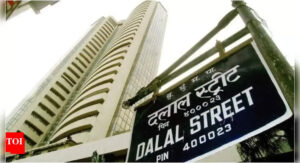
NEW DELHI: Oil prices dropped sharply on Monday after OPEC+ announced it would raise production by 411,000 barrels per day, sparking concerns of a supply glut amid already weakening global demand. The move, described by analysts as a “bombshell”, sent US and international benchmark prices tumbling in early Asian trade.
US benchmark West Texas Intermediate (WTI) crude sank $2.21, or 3.8%, to $56.08 per barrel in electronic trading on the New York Mercantile Exchange. Brent crude, the global benchmark, fell $2.14 to $59.15 per barrel.
The eight-nation group led by Saudi Arabia and Russia said in a statement on Sunday that “strong fundamentals” justified the increase. However, market experts expressed concern that the decision marked a shift in strategy.
“OPEC+ has just thrown a bombshell to the oil market,” Jorge Leon of Rystad Energy told AFP. “This is a definitive message that the Saudi-led group is changing strategy and pursuing market share after years of cutting production.”
The slump in oil comes on the back of growing fears that US President Donald Trump’s tariffs will slow global economic growth. US oil prices are down about 17% for the year, dipping below $60—a level seen as unprofitable for many producers.
Asian equity markets traded cautiously with many major bourses closed for holidays, including Tokyo, Hong Kong, and Shanghai. Australia’s S&P/ASX 200 fell 0.7% to 8,182.90, while Taiwan’s Taiex declined 2.1%. The Australian dollar edged higher after Prime Minister Anthony Albanese’s re-election.
On the currency front, the dollar slipped to 144.32 yen from 144.71, while the euro strengthened to $1.1334 from $1.1306.
Wall Street wrapped up a strong week on Friday, with the S&P 500 rising 1.5% to 5,686.67, the Dow gaining 1.4% to 41,317.43, and the Nasdaq up 1.5% to 17,977.73. It marked the ninth straight day of gains—the longest rally since 2004—boosted by strong US jobs data and optimism about US -China trade talks.
Technology and financial stocks led the charge. Microsoft rose 2.3%, Nvidia 2.5%, and JPMorgan Chase 2.3%. Apple slipped 3.7% after warning that tariffs could cost it $900 million.
Despite the rally, the S&P 500 remains 3.3% down for the year, and still 7.4% off its February record. Analysts warned that broader economic challenges remain. April job growth slowed to 177,000, and the US economy contracted 0.3% in Q1, partly due to a surge in imports ahead of scheduled tariffs.














